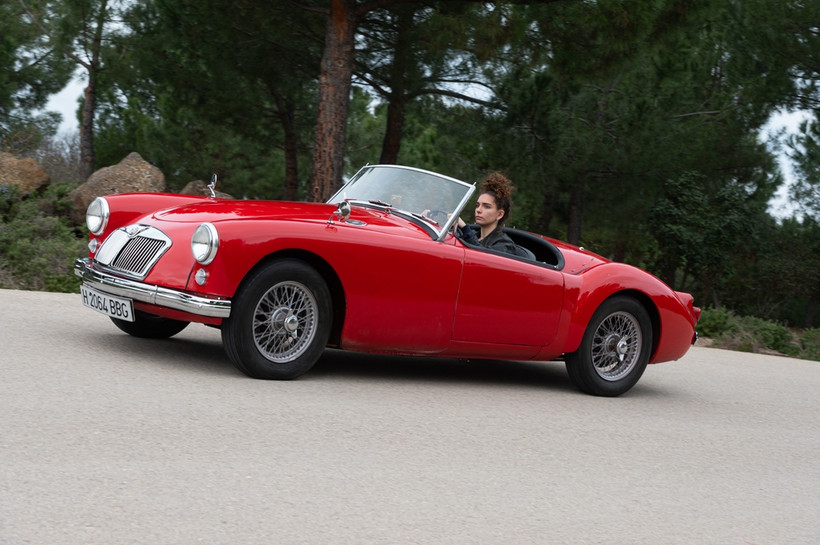As our society justifiably has become more and more concerned the the environment and topics like sustainability in recent decades, certain adjustments have to be made in various industries or areas of our lives. Classic cars are a great example - these kinds of vehicles historically have not been a great mix with sustainability and eco-friendly efforts, but this is changing over recent years.
At Andersen Restoration Parts, we're here to help with a huge range of classic car restorations and upgrades, from suspension kits and control arm shaft kits to center links, torsion bar mounts and many other options. Let's look at why classic cars have historically not been especially friendly to the environment, plus some of the ways that classic car owners and parts manufacturers alike are working toward improved sustainability and eco-friendly practices.
Why Classic Cars Have Historically Not Been Eco-Friendly
Because all classic cars were manufactured during a time period when environmental concerns weren't taken as seriously, they simply don't meet many of the sustainability standards we have today. Here are some examples of this reality:
- Consuming more fuel: Firstly, classic cars consume more fuel than many of the newer vehicle models. This means that they create more harmful emissions in the environment as a result, which is definitely not a good thing for sustainability.
- Lack of catalytic converters: A big issue with classic cars is the lack of modern emission control systems such as catalytic converters. Without these important pieces of equipment, classic cars are unable to process the exhaust fumes they produce in a more eco-friendly way.
- No recycling: A third issue is the fact that many components of classic cars can't be recycled or reused in any meaningful way. This means that they end up being disposed of at landfills, which isn't good for the environment.
- Environmentally unfriendly materials: Many classic cars contain materials that aren't particularly friendly to the environment. For instance, lead-based paints can have a negative impact on air quality if they are burned or otherwise disposed of in an incorrect manner.
- Specialized parts and transport: Lastly, classic car parts are often hard to find and require long-distance transport from the manufacturer to the customer. This leads to an increased consumption of fuel which is bad for sustainability.
Luckily, both classic car owners and parts suppliers have been taking steps over the last couple decades to improve many of these areas. Our next few sections will go over some general tips to consider for your classic car.
Energy-Efficient Vehicle Upgrades
One of the broadest categories of eco-friendly upgrades that classic car owners and enthusiasts can consider for their vehicles is energy efficiency. This includes things like improved fuel efficiency, better aerodynamics, and more efficient engines.
For example, you could install a new fuel injection system in your classic car to help it burn less fuel when accelerating or driving at higher speeds. You could also purchase high-efficiency tires to reduce rolling resistance and improve your car's overall fuel economy.
Additionally, installing an air filter designed specifically for classic cars can help it use less fuel when idle or driving at low speeds. This will ultimately result in lower emissions since the engine won't need to burn as much gas to get the same amount of performance out of the vehicle.
Using Sustainable Materials
When making any kind of upgrade or repair to your classic car, it's important to consider the materials you're using. Certain materials like lead-based paints can have a negative impact on air quality if they are burned or otherwise disposed of in an incorrect manner.
Fortunately, there are plenty of eco-friendly alternatives available these days for classic car enthusiasts. For instance, instead of painting with lead-based paints, you could look into using water-based paints which don't contain any harmful toxins or chemicals.
You can also purchase specialized parts that are designed to be recycled or reused in some way. This is especially important when it comes to components like engine blocks and exhaust systems. Many of these parts can now be manufactured out of sustainable materials such as aluminum alloy, which is much more eco-friendly than traditional materials like cast iron.
Eco-Friendly Transportation Options
Finally, when it comes to transporting your classic car or its parts from one place to another, try to find an option that is as sustainable as possible. Look for suppliers who are in close proximity to you, as this will reduce fuel consumption and emissions.
Also look into the methods of transport that any supplier you use is using. Is it a diesel truck, or perhaps an electric vehicle? If they are using a more energy-efficient form of transport then this is even better for the environment.
At Andersen Restoration Parts, we take sustainability seriously and are proud to offer our customers eco-friendly solutions to restore their classic cars. Contact us today to find out more about how you can embrace sustainability as a classic car owner.

